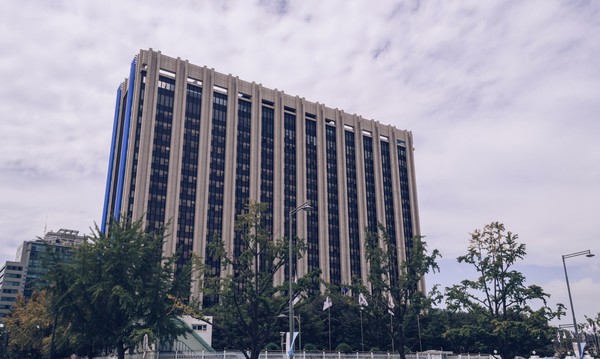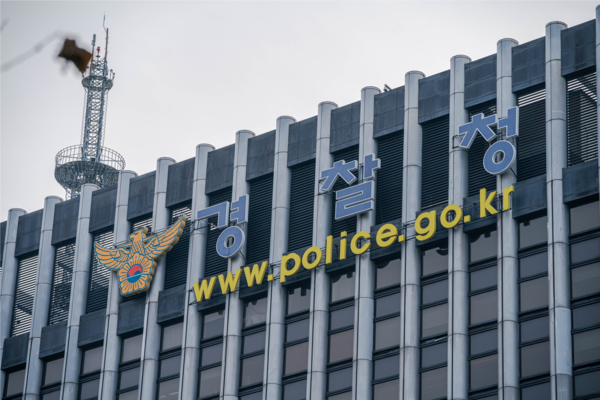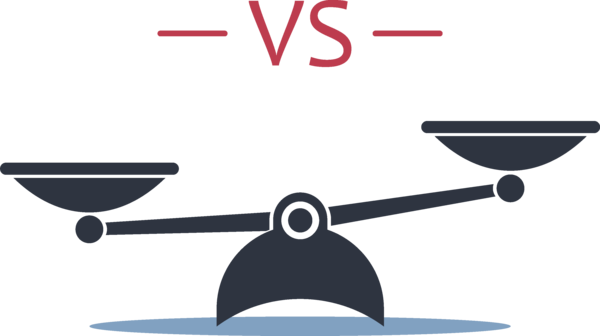On July 26th, the Cabinet Meeting passed a reorganization plan to install a police bureau as an affiliated organization of the Ministry of Interior and Safety (MOIS). As the reshuffle came into force since August 2nd, the National Police Agency (KNPA), which was originally an independent organization, now receives administrative support on important matters such as personnel or approval-required policies, from the police bureau under the Vice Minister of MOIS. Conflicts were raised between MOIS emphasizing the need of democratic control over the police, and the police concerning the infringement of its independance and autonomy. Let’s find out in detail about the founding background, authorities, and concerns regarding the established police bureau that was launched amidst considerable controversies.
The Founding Background of the Police Bureau
The Administration’s Control Over the Aggrandized Police
On June 21st, MOIS’s advisory committee (on the improvement of the police system) announced a recommendation to establish an organization to support the police, for “there has been a fundamental change in the legal nature and scope of the police’s investigation powers.” Firstly, as a result of the mediation of investigative jurisdiction between the prosecution and police in 2021, the police gained the rights to terminate investigations of cases above suspicion. Moreover, in May, the separation of prosecutor’s powers of investigation and indictment (Geom-soo-wan-bak[1]) that revised the Criminal Procedure Act and the Prosecutor’s Office Act, gave the police the independent authority to investigate and close cases without forwarding it to the prosecution office. In addition, starting from 2024, the count-communist investigative authority (the authority to investigate crimes violating the National Security Act, such as espionage) of the National Intelligence Service (NIS) will be empowered to the police. As such, the police are showing a tendency of expanding their authority. Therefore, the Yoon administration established the new police bureau as a way to democratically control and conduct the aggrandized police. The Ministry of Justice controls the Public Prosecutors’ Office by the Criminal Affairs Bureau, establishing overall plans for administration and involving in personnel, organization, and budget of the prosecution. On the same principle, MOIS aims to direct and supervise the KNPA through the police bureau.
Abolishment of the Office of Senior Secretary for Civil Affairs
The removed Senior Secretary for Civil Affairs is another justification for the police bureau insisted by the government, that the government now lacks in means to effectively take control of the police. Former governments were able to be directly involved in the senior police officer’s personnel management and control the police in the president’s office. However, the police, during Cho Kuk Senior Secretary for Civil Affairs’ term during the former Moon administration were embroiled in a scandal of fraudulently interfering in the election of Ulsan’s mayor. Yoon's administration criticized the suspicion that the former president's Senior Secretary of Civil Affairs specifically demanded an investigation intending to sabotage the opposing candidate, which eventually forced the target to resign from the election, and thus abolished the office as pledged during his presidential election. So, the communication route between the president and the police chief weakened, for the personnel delivering the president's intention is now lower in rank, making it difficult to reach the police's chief executive. Therefore MOIS, in charge of affairs of the police, claimed that the police should be under surveillance of their police bureau. At the Cabinet meeting on July 26th, Prime Minister Han Deok-soo said, "The proposal allows transparent and democratic superintendence by the Minister of MOIS, the Cabinet, to take actual charge of the KNPA, which was originally overseen by the Blue House’s Senior Secretary for Civil Affairs." Hong Sung-gul, professor of Public Administration at Kookmin University, said "If the MOIS controls the police administration through an official system, the bureau will be subject to parliamentary inspection and consequently the police will be controlled by the sovereign people."

The Authorities of the Police Bureau
Firstly, the bureau has personnel rights of senior police officers. It, in particular, raised a lively controversy since its establishment, for dealing with their personnel is the bureau’s most important task. The bureau has the rights to nominate senior police officers above Senior Superintendent. The Vice Minister of MOIS who is in charge of the police bureau is not involved in personnel affairs so the appointment proposal is practically under the control of the director and the section chiefs of the bureau. Meanwhile, Minister of MOIS, Lee Sang-min said that he would “substantially operate the police bureau directly under the minister”, and that he would receive assistance from the bureau in exerting the minister’s rights to nomination. Secondly, the police bureau inspects KNPA’s reports. It presents major police-related policies, laws, etc. to the Cabinet meetings. This is to make the secret control, which was previously done by the Senior Secretary for Civil Affairs and the Secretary to the President for Domestic Security, official and transparent under the administration’s system. The police bureau will also oversee introducing agendas to the National Police Commission. Finally, it supports the operation of the municipal police system. The municipal policing is the police authority granted to each local governments, which was created to prevent the centralization and enlargement of police organizations, and to achieve localized police administration.
Issues Over Establishment of the Police Bureau
Conflict Between the Government and the Police
Police of all ranks expressed a strong opposition, arguing that the police bureau violates the independence and neutrality of police investigations. For the first time in 77 years of Korea’s police history, a mass action of the Senior Superintendent (police chiefs) occurred. On July 23rd, 56 police chiefs from across the country attended a meeting to oppose the establishment and to discuss countermeasures. However, former chief of the Ulsan Jungbu Police Station Ryu Sam-young, who led the meeting, was ordered to stand by for disobedience against KNPA’s dissolution order. On the same day, KNPA’s Human Rights Commission issued a recommendation to stop such disciplinary action, and triggered conflict between the government and the police. Minister Lee Sang-min called such mass action “a situation that is similar to the Coup d'état of December Twelfth by Hanahoe[2].” The government clarified the police bureau would not have anything to do with police investigation and security, and that it will be a self-regulation of police by the bureau’s consisting police officials. The police did admit that the work of the Senior Secretary for Civil Affairs should be transparent. However, they criticized the situation in which the Minister of MOIS became the final decision maker for personnel affairs, concerned that the police might again be influenced by political power. Once, KNPA was the National Police Headquarters affiliated to the Ministry of Home Affairs (the ancestor of MOIS), and abused its power to serve for particular political purposes. The government has a history of misjudgment, including a case in 1987 where a student, Park Jong-chul, was killed by torture. Some fear that such government intervention over the police will return in after years since the secretary bureau became an independent, external office as KNPA in 1991, with the implementation of the municipal police system. Concerns are ongoing that by the establishment of the police bureau, an investigative command line that leads from the president, the Minister of MOIS, and to the Commissioner General of KNPA might be formed.
The Police Bureau’s Legal Basis and Form of Lawmaking
The police and the opposition party (the Democratic Party of Korea) opposed to the police bureau. They took issue with both the content and form of the proposal that the MOIS’s police control lacks legal grounds, and that the lawmaking was done out of haste. They pointed out that the establishment was outside the mandates of the Government Organization Act and the Police Act, which were made to guarantee the police’s independence. This is because “public security” was removed from the administrative affairs of the minister as the police were promoted to KNPA. Article 34 of the current Government Organization Act which specifies the affairs of the Minister of MOIS, only says “In order to take charge of affairs concerning public order and security, the National Police Agency shall be established under the jurisdiction of the Minister of the Interior and Safety.” However, the MOIS’s advisory committee justified the control based on the same law’s Article 7, which states that “the head of each administrative agency shall take overall charge of relevant duties, and direct and supervise public officials associated with his/her administrative agency.” In terms of the form of the establishment’s proposal, revision of the Government Organization Act is essential to lawfully control the police according to legislation. But the opposition party expressed constant opposition to the issue. Eventually the government cannot avoid criticism that the reorganization proposal bypassed the National Assembly’s legislation by the form of an enforcement ordinance that is rather presented to Cabinet meetings, not the National Assembly where the opposition party outnumbers the ruling party (The People Power Party). MOIS unveiled the final plan of the police bureau, and gave a pre-announcement of legislation[3] on July 15th, then proceeded to the meeting of assistant and the Cabinet meeting on the 21st. MOIS explained that the revision of Presidential decree related to government reorganization usually gave five days of notice. An official from the Ministry of Government Legislation said, “The legislation is not related to the rights, duties, or daily life of the people (stated in Article 41-3(1) of the Administrative Procedures Act, which stipulates the accepted omits of advance notice), but that the government gave announcement by judging that the public should know”.
Finding Equilibrium with the Korean National Police Commission
Rather than establishing a police bureau, those opposed suggested an alternative to strengthen the authority of the Korean National Police Commission (NPC), an advisory body of the KNPA. The NPC was founded in 1991 on the basis of the Police Act. It deliberates and decides on not only personnel and budget, but also items of major policies and business development. Concerns arose that several functions of the KNPA would be incapacitated as it overlaps with the authorities of the police bureau’s Division of General Support. The division which oversees reporting to the Cabinet on police related important policies and legislation, also reports the submission of consideration on agendas and the request for reconsideration to the NPC. Kim Young-sik, professor of Police Administration at Seowon University said, “The Division of General Support’s ‘request for reconsideration’ is the authority to practically send back NPC’s decisions if the bureau decides it as inappropriate.” “In this case, the NPC has no choice to but to act as a rubber-stamp.” On the other hand, Minister Lee Sang-min dismissed the controversy over the NPC, stating that “what the NPC can do in the legal boundary is only advisory.” He added that it is incapable of handling the police since the committee is unconventional and consists of non-police outsiders. Lee Jong-Soo, professor of Yonsei University Law School, suggested that the NPC’s authority should be substantialized as a means of checking the realized police control of MOIS. The suggestions are expected to be discussed as long-term tasks at the police development committee that the MOIS’s advisory committee also recommended to establish.

Extensive Police Reorganization and Weakening Police Authority
Since August 2nd, the establishment of command rules of the commissioner (of the police and the fire agency) and further reorganization of the police system took effect as well with the police bureau. The command rules require the KNPA to report performances on the president, prime minister, and the minister’s orders, as well as the data submitted to and inspection results received from the Board of Audit and Inspection. The command rules were in the form of departmental ordinance, and only went through examination of the Ministry of Government Legislation, without the Cabinet meeting as the bureau establishment plan did. Minister Lee Sang-min’s first instruction of taking office in May was to form the advisory committee, and the committee’s first meeting that was held the next day of his order issued the recommendation that became the grounds of the police bureau establishment. In addition, the president also indicated his position saying, “I hope the new police bureau will reasonably improve personnel and system of the police.” Overall, the present government officially promotes the weakening of police authorities, contrary to the former.
With the current government showing a legislative movement of extensively weakening the role of the police, different opinions from the police bureau and the police department are expected to be in a fierce standoff. The police are an organization responsible for heavy duties, to protect the citizen’s safety. Hopefully their powers are managed by mutual surveillance and truthful democratic control, based on the agreement between the government and the police.

[1] Geom-soo-wan-bak(검수완박) is the prosecution reform carried out by the previous ruling party (The Democratic Party of Korea). The prosecution service’s ability to directly initiate investigations to crimes will be reduced into two major crimes of corruption and economic crimes. Also, the prosecution's right to conduct supplementary investigations is limited, and the accuser’s right to object is reduced.
[2] The unofficial private group of military officers of South Korea, headed by military general Chun Doo-hwan. Its coup on December 12th, 1979 led to his seizure of power to become the fifth president.
[3] A system that allows the public to be informed about the contents of the statutes in advance and present their options, in the case of enacting, revising or abolishing laws. Generally, the notice period shall be at least 40 days in advance.

